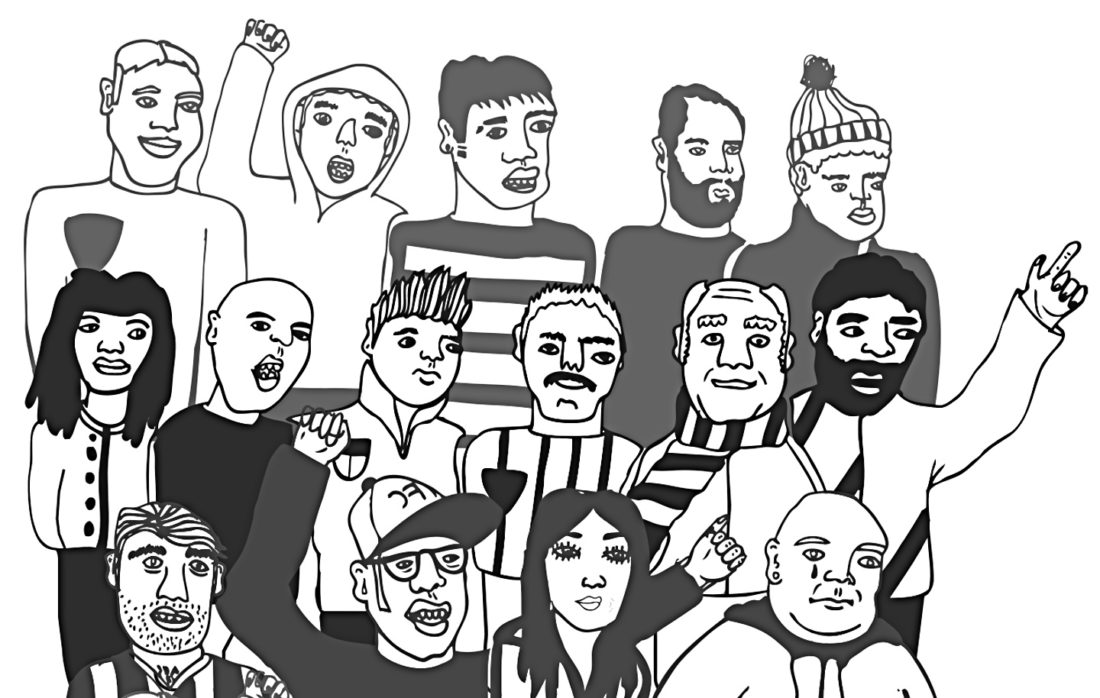During the 1970s, wealthy European countries were willing to fund Romania’s acquisition of technology through loans given on political considerations, this debt rose from just $1.2 billion in 1971 to $13 billion by 1982. In 1981, in order to pay its due debts, Romania requested a line of credit from the International Monetary Fund and adopted a policy to pay back all its debt. As recommended by the IMF, imports were reduced and exports were increased. The effect of the cuts in imports in Romania, of food, was incorrectly estimated by the foreign analysts and it led to food shortages.
In October 1982, the Central Committee approved a law on the participation of workers in the investment fund of state-owned companies. Through this act, the workers were given the “right” (in practice, it was mandatory) to invest their money and become, theoretically, co-owners of the company. In practice, it meant a reduction in wages for workers, with part of their earnings given to the investment fund of the company. In December 1982, a new reform of the salaries system was introduced: part of the wages were to be paid to the workers only if the company achieved its goals. This part was initially 24% and later increased to 27%. The goals were often not achieved, so de facto this meant a decrease in wages. Incomes began to shrink not only due to inflation, but also due to the lack of availability of certain products, while the flourishing black market priced out most people.
Amidst this national crisis, the decade saw Romanian domestic football dominated by the Bucharest teams; Steaua and Dinamo, but on the international stage the national team failed to qualify for Euro 1980, finishing 3rd in a group with Spain, Yugoslavia and Cyprus, they also failed to qualify for the 1982 World Cup, again finishing 3rd in a group with Hungary, England, Switzerland and Norway. Romania did qualify for Euro ’84; but finished bottom of the group with 1 point (a draw with Spain in their opening game).
Under re-employed manager Emerich Jenei, and nicknamed “The Speedies”, Steaua won the 1984/85 season, going on a 12-game winning streak and finishing the season with a +47 goal difference, his good fortune continued the following season when Steaua won the league again, only losing 3 matches and finishing with +54 goal difference, but the real impressive feat was a European Cup victory. Jenei explained: “In training, we did one touch football, only when the boys lost their focus, because it is difficult to keep that up.”
Jenei, a former Steaua player between 1957 and ’69, knew the club inside out, he had also had a previous stint as manager in 1983, and his tactics and understanding of his players made him the perfect technician: “I didn’t hold endless team meetings before matches, because long meetings drained players’ concentration. I preferred to analyses opponents step by step, every short meeting was a step forward.” He would also announce the starting XI three days before every match, saying: “it doesn’t make sense to keep the players tense until the eve of the game – if they are tense, other problems might arise and who knows what might happen.”
The first round saw Steaua drawn away against Vejle Boldklub of Denmark. Vejle take the lead and are 1-0 up until 70th minute sub, Marin Radu scored an equaliser in the 89th minute, a 4-1 home leg win at Stadionul Steaua resulted in a second-round tie against Hungarian Champions; Budapest Honved. The first leg at Kispest stadium saw the home team win 1-0, but another 4-1 win at the Stadionul Steaua resulted in a quarter final tie against Finnish Champions; FC Kuusysi (now; FC Lahti Akatemia). The remaining quarter final fixtures saw Lothar Matthaus lead Bayern lose 3-2 to an Anderlecht side that featured Arnor Gudjohnsen – Father of Eider. Alex Ferguson’s Aberdeen lost to Gothenburg on away goals, Terry Venables’ Barcelona beat a last year’s competition winners; Juventus. Steaua’s first leg, at home, ended in a 0-0, the away leg at the Helsinki Olympic Stadium almost ended with the same score, but another late goal, this time scored by Victor Piturca, saw the Romanians progress to their first ever European Cup Semi-Final.
Whilst Barcelona progressed to the final on penalties, after losing 3-0 in the first leg to Gothenburg, in Gothenburg, Pichi Alonso scored a hat-trick to take the game to a shootout. Meanwhile a late Anderlecht goal at the Constant Vanden Stock, gave the Belgians the advantage heading into the second leg, but Steaua’s impressive home record continued, and the Romanians won 3-0, with Victor Piturca scoring two to take his total for the tournament up to 5 goals.
The final was held at the Ramon Sanchez Pizjuan Stadium in Seville. Terry Venables’ Barcelona featured a lot of household names as well as European International players; Centre back partnership of Miguel Bianquetti “Migueli” nicknamed Tarzan because of his physical power, and Jose Ramon Alexanko both representing Spain over 30 times. Midfielders; Victor Munoz won eight major titles whilst at Barcelona, his partner in the middle was west German international Bernd Schuster. Striker Partnership of Francisco Carrasco and Scotland International (formerly Tottenham Hotspurs with Terry Venables) Steve Archibald.
Steaua, on the other hand, were missing their Captain, Tudorel Stoica after he collected 3 yellow cards – 1 against Honved and then in both legs verse Anderlecht. Tefan Lovan, who stood in for the suspended captain recalled; “People were telling us we didn’t have a chance, but we weren’t scared at all, because we had formed a team with real personality.” Manager Lenei said; “Wouldn’t it be a pity not to take the trophy having reached the final, knowing the chance may never come again.”
Steaua neutralised Barcelona brilliantly, the fans’ anxiety played on Venables’ team as the game wore on, Goalkeeper Helmuth Duckadam recalls; “The atmosphere was fantastic – against us, of course – but sometimes a hostile atmosphere makes you feel even stronger.”
After 120 minutes the game is still 0-0, Goalkeeper Duckadam recalls; “The fact we reached extra time gave us hope we could make it to penalties too. Previously, almost every Romanian team lost shoot outs in Europe, so winning on penalties was something unique. We didn’t have a player who could decide a match on their own, but we had a very good team with very good players.” The game went to a penalty shootout, Barcelona had progress from the semi-final winning a shootout with goalkeeper Urruti hailed the hero, and Steaua were to take the first penalty.
Mihail Majearu stepped up first and was denied by Urruti, Alexanko fired low to the keepers right and was saved, midfielder Laszlo Boloni was second to the stop for Steaua, and again his penalty was saved. Again Barcelona fired bottom right and again Duckadam made the save, Lacatus finally broke the deadlock with a rocket straight down the middle, hitting the cross bar and deflecting down over the line. Pichi Alonso, like the two before him, aims bottom right and again Duckadam makes the save, up steps Gavril Balint, and rolls it in the bottom corner. Barcelona must score to keep the game alive, Marcos Alonso Pena (father of Chelsea’s Marco Alonso) places the ball on the spot, this time he chooses the keepers bottom left, but Duckadam is unbeatable and makes the save that makes Staeua Bucharest European Champions. Helmuth Duckadam, to this day, is still refereed to as “The Hero of Seville”.
After the game Piturca recalls; “In 1894, I was with Steaua at a tournament in Gijon. I bought my one-year old son a tiny kit of my favourite team; Barcelona. I couldn’t have guessed that two years later I was going to beat them in a final. We were a team from Eastern Europe with no money, and we achieved so much.”
This Steaua team won 5 straight titles and 4 Romanian Cups and went on to reach the 1988 European Cup semi final and 1989 final – beaten by AC Milan. Cup final captain, Iovan, went on to make 6 appearances for Brighton & Hove Albion before returning to Steaua the following season. Sweeper Miodrag Belodedici went on to play for Red Star Belgrade, Valencia and Villarreal before ending his career back at Steaua and forward Marius Lacatus had an unsuccessful season at Fiorentina. Manager Jenei went onto manage the Romanian national team who peaked at the Italia ’90 World Cup, finishing 2nd in their group, ahead of Argentina and the Soviet Union, but they were knocked out in the Round of 16 on penalties by Jack Charlton’s Republic of Ireland.

